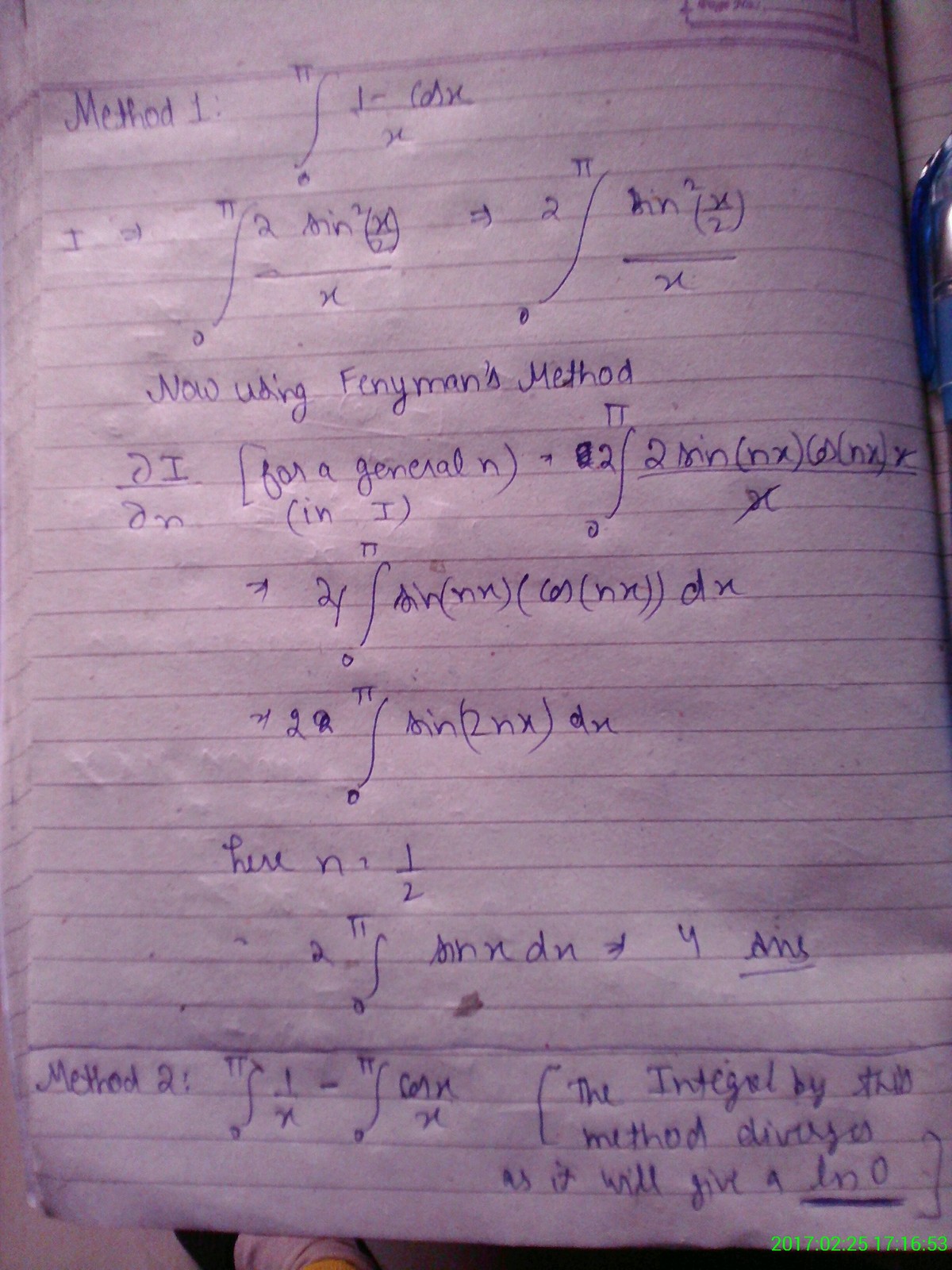Integral 21
∫ 0 π x 1 − cos x d x
If the above integral equals V , find ⌊ 1 0 5 V ⌋ .
NB: Once you figure out the integral's closed form, perhaps with a bit of research, you can use Wolfram Alpha to help you get the final form.
The answer is 164827.
This section requires Javascript.
You are seeing this because something didn't load right. We suggest you, (a) try
refreshing the page, (b) enabling javascript if it is disabled on your browser and,
finally, (c)
loading the
non-javascript version of this page
. We're sorry about the hassle.
1 solution
( − π 2 ) k
 pl. help sir
@Chew-Seong Cheong
pl. help sir
@Chew-Seong Cheong
Log in to reply
Log in to reply
The first method is incomplete, you need to integrate back w.r.t. n to get I(n) and hence I(1/2). The second method, both the integrals diverge individually, but not when combined. Think in terms of indeterminate form, for instance infinity - infinity.
Log in to reply
@Ishan Singh – thnx bro, ab smj a gya , you rock ! :)
Second method diverges because x 1 and x cos x diverges when x → 0 .
Log in to reply
that's what i wanna ask, if it diverges , how the other methods yield an answer and also why is my first method wrong ?
V = ∫ 0 π x 1 − cos x d x By Maclaurin series = ∫ 0 π x 1 − ( 1 − 2 ! x 2 + 4 ! x 4 − 6 ! x 6 − . . . ) d x = ∫ 0 π k = 1 ∑ ∞ ( 2 k ) ! ( − 1 ) k + 1 x 2 k − 1 d x = k = 1 ∑ ∞ 2 k ( 2 k ) ! ( − 1 ) k + 1 π 2 k
Since cosine integral C i ( x ) = γ + ln x + k = 1 ∑ ∞ 2 k ( 2 k ) ! ( − x 2 ) k , where γ is Euler-Mascheroni constant , then we have:
V = − k = 1 ∑ ∞ 2 k ( 2 k ) ! ( − π 2 ) k = γ + ln π − C i ( π ) = 0 . 5 7 7 2 1 5 6 6 + 1 . 1 4 4 7 2 9 8 8 6 − 0 . 0 7 3 6 6 7 9 1 2 = 1 . 6 4 8 2 7 7 6 3 4
⇒ ⌊ 1 0 5 V ⌋ = 1 6 4 8 2 7